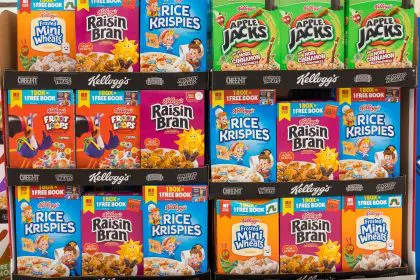The allure of food truck entrepreneurship continues to captivate young culinary enthusiasts seeking their path in the food industry. While these mobile kitchens offer a more accessible entry point than traditional restaurants, the road to success proves challenging for many. Understanding the common pitfalls that lead to failure can help aspiring food truck owners build more resilient businesses.
The financial reality
The perception of food trucks as a budget-friendly alternative to restaurants often misleads young entrepreneurs. While initial costs may be lower, the financial demands extend far beyond purchasing the truck itself. Modern food truck operations require substantial investment in commercial-grade equipment, point-of-sale systems, and health department-compliant modifications.
First-year expenses typically include:
- Commercial kitchen equipment and customization
- Multiple permits and licenses
- Health department certifications
- Vehicle insurance and liability coverage
- Commissary kitchen rental fees
- Marketing and branding investments
- Emergency repair funds
Successful food truck operators recommend maintaining a six-month operational cost reserve to weather unexpected challenges and seasonal fluctuations.
Market understanding and positioning
The mobile food industry demands more than culinary expertise. Young entrepreneurs often rush into the market without understanding their target audience or competitive landscape. This oversight leads to menu misalignment, poor location choices, and ineffective pricing strategies.
Critical market research elements include:
- Local food truck regulations and zoning laws
- Peak traffic patterns in potential service areas
- Demographic analysis of target neighborhoods
- Competitive analysis of existing food vendors
- Event calendars for potential catering opportunities
- Weather patterns affecting outdoor dining
- Local food preferences and price sensitivity
Successful operators continuously gather customer feedback and adjust their offerings based on market response.
Digital presence and customer engagement
Modern food truck success relies heavily on digital marketing prowess. The most innovative menu cannot overcome poor online visibility. Young entrepreneurs must build robust digital strategies that keep customers informed and engaged.
Essential digital elements include:
- Real-time location updates across platforms
- Consistent brand messaging and visual identity
- Regular social media content showcasing menu items
- Online ordering capabilities
- Event announcements and special promotions
- Customer review management
- Email marketing for loyal customers
Operational excellence
The confined space of a food truck magnifies the impact of operational inefficiencies. Successful operators develop systems that maximize productivity while maintaining food quality and safety standards. This includes careful consideration of menu design, ingredient storage, and workflow patterns.
Effective operational strategies involve:
- Streamlined menu items that share core ingredients
- Precise prep schedules reducing food waste
- Clear staff roles and responsibilities
- Equipment layout optimizing movement
- Inventory management systems
- Quality control checkpoints
- Safety protocol documentation
Strategic adaptability
The food truck industry’s dynamic nature requires constant evolution. Successful operators remain flexible, adjusting their business models to meet changing market conditions. This adaptability extends beyond menu updates to encompass entire business strategies.
Key adaptation areas include:
- Seasonal menu modifications
- Alternative revenue streams development
- Weather contingency planning
- Partnership opportunities with local businesses
- Event catering expansion
- Ghost kitchen operations during off-seasons
- Digital ordering integration
Building sustainable success
Young entrepreneurs can transform their food truck ventures into thriving businesses by addressing these critical areas. Success requires balancing culinary creativity with business acumen, while maintaining the flexibility to evolve with market demands.
Essential success factors include:
- Comprehensive financial planning and monitoring
- Continuous market research and customer feedback
- Strong digital presence and community engagement
- Efficient operational systems and controls
- Strategic partnerships and revenue diversification
- Regular business model evaluation and adjustment
The food truck industry continues to evolve, offering opportunities for innovative young entrepreneurs who approach it with thorough planning and adaptability. By understanding and addressing common failure points, new operators can build foundations for lasting success in this dynamic market segment.
This story was created using AI technology.















